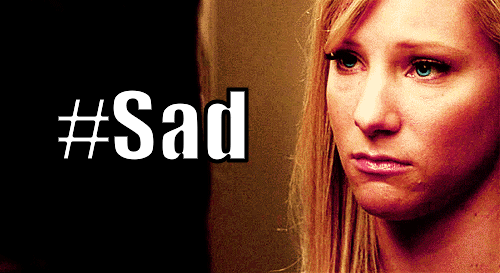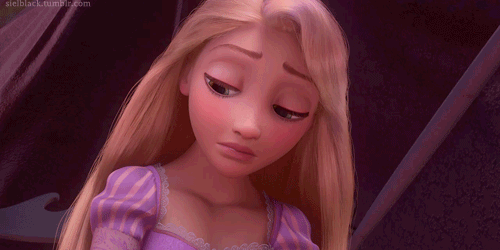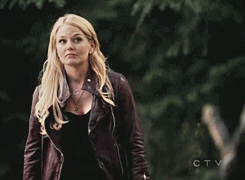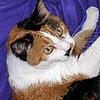Take a photo of a barcode or cover
I was most taken by Kessler's characterization of Death, Famine, War, and the other Horseman. Not only are Kessler's depictions a welcome change from the stereotypical descriptions, I was surprised at how quickly my imagination adopted the unique characters... I actually find it comforting. Death dons "old-fashioned Converse high tops, untied" and has long blonde hair and a sexy scruff. I'd much rather imagine Death as a philosophical rockstar in Chucks than a scary figure cloaked in black.
HUNGER follows Lisabeth Lewis as she assumes the role of Famine and defies the laws of time and space to travel the world and witness the horrifying effects of hunger. Lisa struggles with an eating disorder, which is, of course, apparent to the reader and Lisa's friends and family while she's in complete denial. Despite the fantastical aspect of HUNGER, I found Kessler's portrayal of a young girl struggling with anorexia to ring true. The Author's Note mentions Kessler's experience with her own eating disorder as well as a close friend's, and her intimate knowledge of the subject matter is apparent in Lisabeth's actions and thoughts.
I'll definitely be reading the next three Horseman novels - Rage and Loss are the aptly named second and third installments - and I may even find myself looking into Kessler's adult titles.
Grade: A
Hunger is an intense story; a really intense story. Revolving around anorexia and bulimia, Kessler does an amazing job delving into the psyche of Lisa, the protagonist. One of the reasons that it is so true to life is that Kessler herself suffered from an eating disorder. Then, besides the fact that Hunger could be a fantastic contemporary novel all by itself, she throws in the Riders of the Apocalypse for good measure. This just adds another fantastical element to the story, which really makes it sing. This is what I love about fantasy/paranormal books. The author is able to bring the psyche forward and manifest it in a form, making it become a tangible character.
Not only was the story heartbreaking, it was also very funny! This is such an important aspect because if it wasn't funny, I'd literally be crying the entire time. Books should reflect real life, and often heartbreak and humor go hand-in-hand. Surprisingly, Death himself was the funniest part of the whole book! Can you even imagine? I loved that Kessler took these frightening biblical characters and turned each into something more. Not exactly humanizing them, but giving each personalities which could be related to in some way.
The only problem I had with the book was the ending. I felt it was too short and rushed. The readers didn't really get to see any recovery being done by Lisa and I felt her journey as Famine was a little to short. I would have liked to see more. But luckily, I will get to read more about this world Kessler has created in Rage! I urge everyone to go out and read Hunger by Jackie Kessler; I really enjoyed it! And if possible buy a copy because a portion of proceeds will be donated to the National Eating Disorders Association (all of Kessler's books have this fantastic donation aspect to them.
Lisabeth deals with a bit more strangeness as her day goes on. The scales seem to follow her, but no one else can see them. The food on her plate turns to ash. The weirdest thing though, is a large black horse hanging out in the backyard eating her mother’s flowers that only Lisabeth can see. Soon everything is made a bit clearer for Lisabeth. There was an opening in the Four Horsemen of the Apocalypse and she was chosen as the new Famine. Creating hunger riots, witnessing the starvation of poor villages, and the power to fill people’s stomachs is not what Lisabeth is looking for to do with her life, however, the power imbued within her by accepting her title might be enough to change her mind. Throughout all of her travels and her encounters with the other three Horsemen, Lisabeth never loses the Thin Voice in the back of her mind, giving her a false sense of reality.
Hunger is an amazing book that tackles the sensitive topic of eating disorders in a unique, dark way. Hunger leaves nothing out in regards to the horrible disorder and even shows the reader a distinctive connection between starving oneself on purpose and starving to death via the environment one lives in. One of the starkest, most shocking books on eating disorders, Kessler combines the struggles on everyday teenage life with a supernatural twist.
tl;dr I think a teenager who is not too discerning about their stories will like this book, especially as they may be able to relate to the main character and the content of the book. The content is definitely an important topic to cover. The writing was mediocre, but the story itself was decent. This book, and the review, could contain triggers though, as it confronts anorexia and eating disorders.
Description (from Goodreads) “Thou art the Black Rider. Go thee out unto the world.”
Lisabeth Lewis has a black steed, a set of scales, and a new job: she’s been appointed Famine. How will an anorexic seventeen-year-old girl from the suburbs fare as one of the Four Horsemen of the Apocalypse?
Traveling the world on her steed gives Lisa freedom from her troubles at home: her constant battle with hunger, and her struggle to hide it from the people who care about her. But being Famine forces her to go places where hunger is a painful part of everyday life, and to face the horrifying effects of her phenomenal power. Can Lisa find a way to harness that power — and the courage to battle her own inner demons?
Ooookay. So firstly: the writing. I'm not 100% sure, but I think this is Ms Kessler's first book. And if it was, I can both tell and forgive the writing style. It feels like a person's first attempt at a book, and it reads that way too. Its not terrible, but it could definitely use a bit of improvement technically. This could be something that I have begun noticing over the 100+ books I've read in the past year and a half, though. If you're in high school reading this, you may not even notice it.
Now for my thoughts on the story and characters. I think this story is really important for people to read, especially those who are currently struggling with an eating disorder. I never had one myself (I love pizza too much), but I've read some reviews of people who read the book and said Kessler absolutely hits the nail on the head with the way it feels having an eating disorder. The author herself even reveals that she struggled with an eating disorder when she was younger, which no doubts lends the realism to what Lisabeth feels when she's fighting with food.
The way its written, also, you see Lisabeth how she sees herself. Whenever Lisa looks in the mirror, she sees fat, so you see fat. When she sees food, she goes through her calorie counting process and the equivalent exercise she will need to do to make sure she's in calorie deficit. Its terrifying, and terribly sad to be part of.
It was hard to read at times, because I would get so frustrated with Lisabeth and her actions. About how she would praise her friend's "control" over food - the way she could eat 20 cookies and then go throw it back up. But again, this is not a struggle I personally ever went through. I think its important for teenagers facing these struggles to read and to understand they're A) not alone, and B) not lost to the eating disorder forever.
As for the whole "riders of the apocalypse" theme. I wasn't really into it. First of all, I read this book after reading Love Letters to the Dead (click for review) in which the main character writes letters to Kurt Cobain. Then I read this book in which the rider Death is fashioned after Kurt Cobain. I mean, they don't full on say that until the next book, but it definitely hints towards it. Super weird, especially considering I read these books a mere week before the 20th anniversary of Kurt Cobain's death. Crazy man, crazy.
I understand the purpose of the riders. Its a supernatural
event that allows the character to grow and overcome their struggles. But I felt like that part of the story wasn't done very well, and at times was a little cheesy. I think Kessler could've used any other supernatural method to help these characters overcome their problems, and it may have made a better story and better underlying plot.
Anyways, overall these books, I think, should be read in high school by teenagers. I think they give at least some insight into people with eating disorders, so maybe if the person reading isn't struggling with one - they may have a better understanding as to why someone they may know is doing what they're doing.
Even if a reader has no experience with an eating disorder they can relate to this novel because of Lisa's "thin voice." It's safe to say that everyone has a voice. It could be a thin voice, the devil on one shoulder and the angel on the other, the voice that says the truthful answer when we speak the lie. In every case, the voice is there.
There are other issues sprinkled in the novel as well. Lisa's relationships with her mother and father are sketchy as well as the relationship with her boyfriend.
The tense occasionally felt off and I found myself rereading passages in a few places. Third person can be tricky (as I've experienced in my own writing).
I tried to read this shortly after it came out, but wasn't able to get very far. I'm very glad I gave it another try. Great title. I'm looking forward to Rage.
I understand that Lisa had to work on her issues with food, but I would feel better knowing she was out there working for the greater good.
The book opens with Lisabeth accidentally accepting the position of Famine. She has a black steed who likes cookies. She likes the horse but she doesn't want the job.
Lisabeth is also suffering with her own special form of famine — anorexia. Most of the book is about the negative effects of anorexia, body image and the stress teens (especially girls) go through. As Lisabeth fights her own demons she also fights with her parents and friends, alienating herself when she needs them most.
Hunger for a YA is a short book, coming in at 175 pages. It's really more of a long novella then a full length fantasy. There's not much time to get to know Lisabeth beyond her fight with anorexia and her revulsion at being Famine.
***Possible Spoilers***
The main character, an aneroxic teenage girl, was told she could die or become famine. She decides to try her power as famine while still living a teenage life. During this time period of being both famine and human, her use of the power is very confusing and complicated and not explained in a way that I think anyone can fully understand. Then she decides to not be famine after she kills another one of the riders and death just lets her have her normal life back. Once she returns to her normal life she seeks help for her eating disorder. That is the entirety of the book.
First off, why was it okay that one rider could kill another? Second, what happened to the die or be famine ultimatum? How does the famine power work exactly? She spent the entire time trying to figure this out, but really it was just her complaining about being tired, thirsty, or hungry, or complaining about other people eating too much or too little.
This just was not enough to make this a recommendable or memorable book.















